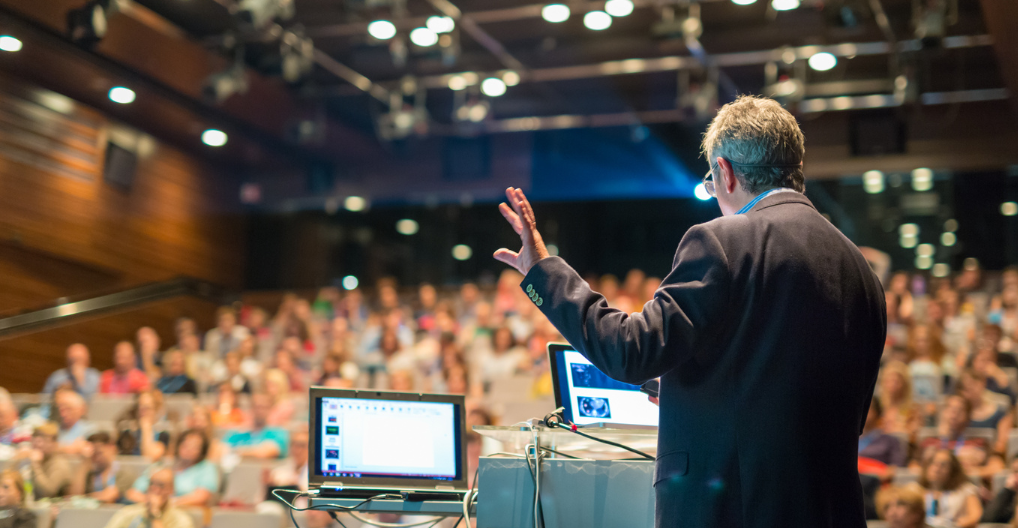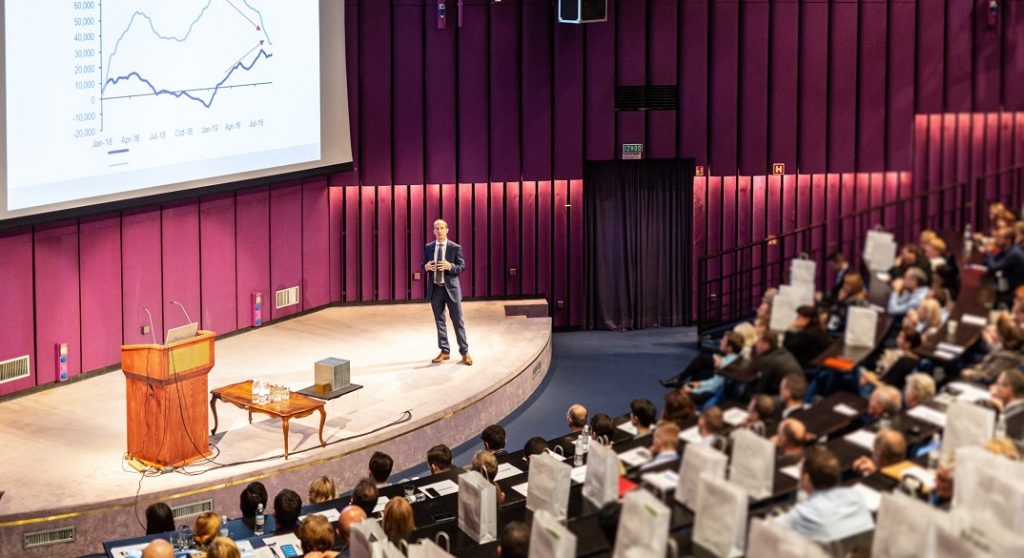Organising an academic event can be a daunting task, whether you are a student, faculty member, or administrator. From selecting a venue to coordinating with speakers and managing logistics, there are numerous factors to consider. However, with careful planning and execution, academic events can provide an excellent opportunity to share knowledge, build relationships, and promote your institution’s reputation.
In this article, we’ll provide you with a step-by-step approach to help you organise a successful academic event, from defining your goals to evaluating the event’s success.
Pre-Event Planning

Planning is the core thing when it comes to organising school or university events. It is the pillar of any event execution. A well-planned event can leave a favourable impression on attendees. First things always come first. So, put your hands on it and start event planning. This step includes defining the event purpose and scope, creating a budget, identifying potential speakers and attendees, determining logistics and requirements, and establishing the event timeline and deadlines.
1. Define the Purpose and Scope
The first step in organising an educational event is to define its purpose and scope. Consider what you hope to achieve through the event ideas, such as knowledge dissemination, networking, or fundraising. Determine the range of the event by defining the topics to be covered and the target audience.
2. Create a Budget
Once you have defined the purpose and scope of the event, create a budget and funding strategy. Determine the estimated costs for venue rental, catering, transportation, marketing, and other expenses. Explore funding sources such as grants, sponsorships, and donations to offset the costs.
3. Identify Potential Speakers and Attendees
Identify potential speakers and attendees based on the event’s purpose and scope. Look for industry experts, influential figures, and researchers with a reputation for quality work. Consider the potential audience and target their interests.
4. Determine Logistics and Requirements
Determine the logistics and venue requirements for the event. Consider the size of the event, the number of attendees, and the type of facilities required. Review the available venue options and select one that meets your requirements.
5. Establish Event Timeline and Deadlines
Establish an event timeline and deadlines. Define when the event occurs and set deadlines for speakers’ submissions, marketing, registration, and other critical milestones. Ensure that the timeline is realistic and feasible, given the complexity of the event.
Event Preparation

After pre-event planning, it’s time to prepare further for your event. It includes all necessary details and activities, such as developing marketing strategies, creating event materials, and establishing the ticketing process. Apart from that, confirming speakers and planning catering services are also part of the event preparation step.
1. Develop a Marketing Strategy
Develop an event marketing strategy to reach your target audience. Use social media, email, and other online marketing channels to promote the event. Determine the best channels for reaching the target audience and create a marketing plan that includes the messaging and timing for each channel.
2. Create Event Materials and Collateral
Create event materials and collateral to communicate with attendees and speakers. This can include a program schedule, welcome packets, name badges, and signage. Ensure that all materials are consistent with the event branding and messaging.
3. Establish Registration and Ticketing Processes
Establish a registration and ticketing process for attendees. Consider using an online platform that can handle academic event ticketing, payments, and communications with attendees. Determine the registration fees and any discounts or promotions that can attract more people to attend the event.
4. Confirm Speaker and Attendees
Confirm the logistics and requirements for the event with the speakers and attendees. This can include travel arrangements, accommodations, and presentation requirements. Ensure that all requirements are communicated clearly and early in the planning process.
5. Plan Catering and Hospitality Services
Plan catering and hospitality services for the event. Consider dietary restrictions and preferences per the attendees’ choice when selecting menu options. Determine the number of staff required to manage catering and hospitality services and ensure the recruitment of appropriately trained hands.
Event Execution

Finally, this is the moment when you need to be more alert and careful. After a long period of planning and preparation, it’s time to execute the event. This step includes decorating the event, managing technical requirements, attendee’s check-in process, managing the program according to schedule and coordinating food and refreshment facilities.
1. Decorate the Venue
Set up and decorate the event venue according to the event’s theme and branding. Ensure that the platform is adequately configured to accommodate the number of attendees and that all necessary equipment and furniture are in place.
2. Manage Technical Requirements
Manage event logistics and technical requirements, including audio-visual equipment, lighting, and staging. Ensure all technical specifications are tested and working correctly before the event starts. Have a backup plan in case of technical issues during the event.
3. Welcome and Check-In Attendees
Welcome and check-in attendees as they arrive at the event. Create a designated area for attendees to check-in. This can be a table or booth near the entrance of the event. Please provide them with name badges and other event materials. Ensure that the check-in process is quick and efficient, minimising wait times.
4. Manage Speaker and Presentation Schedules
Manage speaker and presentation schedules to ensure that sessions start and end on time. Ensure speakers have the necessary equipment and support to deliver their presentations effectively. Coordinate with moderators to manage Q&A sessions.
5. Coordinate Catering and Hospitality Services
Coordinate catering and hospitality services, including meals, snacks, and beverages. Ensure that dietary restrictions and preferences are accommodated. Monitor the catering and hospitality staff to ensure they provide quality service throughout the event.
Post-Event Activities

Post-event activities are as important as the planning, preparation and execution of any event. This can help you to organise your next event, solving all the problems that arise in the recent event. This step includes collecting feedback and making decisions from the mistakes you have made before. The following tips can help you to do so.
1. Collect Feedback
Collect feedback from attendees and speakers to evaluate the event’s success and identify areas for improvement. Use surveys, interviews, or other methods to gather feedback. Analyse the feedback to identify trends and specific issues that must be addressed.
2. Review Event Metrics
Review the event financials and performance metrics to determine if it met its goals. Compare actual expenses and revenues with the budgeted amounts. Analyse attendance, engagement, and other performance metrics to assess the event’s success.
3. Evaluate the Event’s Success
Evaluate the event’s success and effectiveness based on its purpose and scope. Assess whether the event achieved its intended outcomes and positively impacted attendees and the organisation.
4. Follow-up with Attendees
Follow up with attendees and speakers after the event to maintain engagement and build relationships. Send thank-you notes, share event materials, and provide information about upcoming events or resources.
5. Prepare the Final Event Report
Prepare a final event report and documentation summarising the event’s planning, execution, and outcomes. Include financial statements, performance metrics, feedback, and other relevant information. Use the report to inform future event planning and improve organisational processes.
Last words

Academic events are essential for fostering innovation and promoting the dissemination of new ideas and research in various fields. To ensure the success of your educational event, it’s vital to follow a comprehensive planning guide and cover all necessary steps. With careful planning, organisation, and confirmation well in advance, you can ensure a seamless and successful event. However, it’s always wise to anticipate the unexpected despite your best efforts. By keeping this in mind, we have complete confidence that your upcoming academic event will be a resounding success and leave a lasting impact on all attendees.
In addition, EventBookings is readily available to assist you in making your upcoming school or university event a huge success by engaging the services of our expert team. Our comprehensive range of event planning and management services, including event management software, covers all aspects of event organisation and execution.




